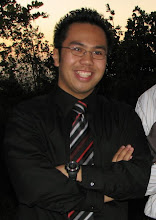TAKING ON THE ICU
ONE NUMBER AT A TIME.
Well it’s week 2 here for me in the ICU and CCU at Grant Medical Center here in Columbus, Ohio. I’m getting used to the big city rhythm again, by taking my 15 minute commute everyday down Interstate 71 to get to the centrally-located hospital. Could you say my rush-minute days are over? Well, not certainly so, as traffic moves, for the most part, well in Columbus, in comparison to Chicago.
During my past year of clinicals, this is my first real exposure into the world of critical care medicine. When I did my Internal Medicine Core, I remember simply seeing these huge plasma-screened machines sitting next to patients that were dependent on these machines to live. Well, now I know what those machines are saying to me. Welcome to the world of the mechanical ventilator, where with the simple touch of a button, I could change any aspect of the patient’s breathing. You name it, it probably can do it (make it longer, make the patient take deeper breaths, even set them to breathe at a minimal rate). There's other machines, such as ones that are able to give dialysis 24 hours a day and even those that dose IV medications and fluids precisely.
Critical care medicine has also been interesting, as they take a different approach (at least in my perspective) to gathering information than I’ve seen in my other rotations. History-taking is very important to a patient on the medicine floors or a family physician at the office, but as many of the patients entering the ICU are sedated and most probably intubated, much of the history and decision making has to come from other sources, mainly the charts and labs. For the hospitalists on the medicine floors, it’s an information gathering game (most diagnoses can be concluded simply from the history itself), while I see that critical care physicians play the numbers game (I’ve never seen evidence based-medicine play such a dominant role until now).
One thing can be truly daunting about the ICU: there is always at least one machine, TV, or monitor in a room. I think I saw at least one room this past week with a dialysis machine, mechanical ventilator, vitals monitor, and multiple digital IV infusion pumps. I’ll be honest, if it wasn’t for these machines, many of the patients in the ICU/CCU would not survive. I find it odd that we always make fun that someday computers and machines will take over the world, well if one looked at the ICU, machines were definitely taking over one patient at a time.
The outcomes from the machines differed from patient to patient. Sometimes the machine was able to assist someone who had an acute exacerbation of their COPD to get through a day of respiratory distress. And others… well, are best demonstrated by the code I experienced last week. As I’ve been hearing, coding is no joking matter. With each minute that a person goes through CPR, I’ve heard the survival chances of that patient decrease by 10%. And with the code that I experienced, it lasted quite a while. When one loses the game, its rather difficult to see, as one by one, each of the screens and monitors takes their turn to turn off. It’s as if they are giving up, but in truth, the machines get to be shipped off to the next room to work on a new patient.
However, as dark as this may seem, there are wins that definitely occur on the floor. I feel a genuine feeling of good whenever I see a patient start to wake up on a ventilator, and move their way to a much less invasive nasal cannula to assist with getting oxygenation to them (basically a plastic tube that shoots oxygen up your nose). I had a patient this week smile after her week on the ventilator. She sounded like she faced a tough battle with that machine, looking fatigued, having a rough, raspy voice, but she did well. Each time we're able to pull out a tube, I feel like the ICU/CCU team definitely had the machines on their side.
---
This past weekend I spent in my friend Neal's small town of Clarksville, OH with his family. It was a great experience experiencing the real small-town first hand. More on that next time.



